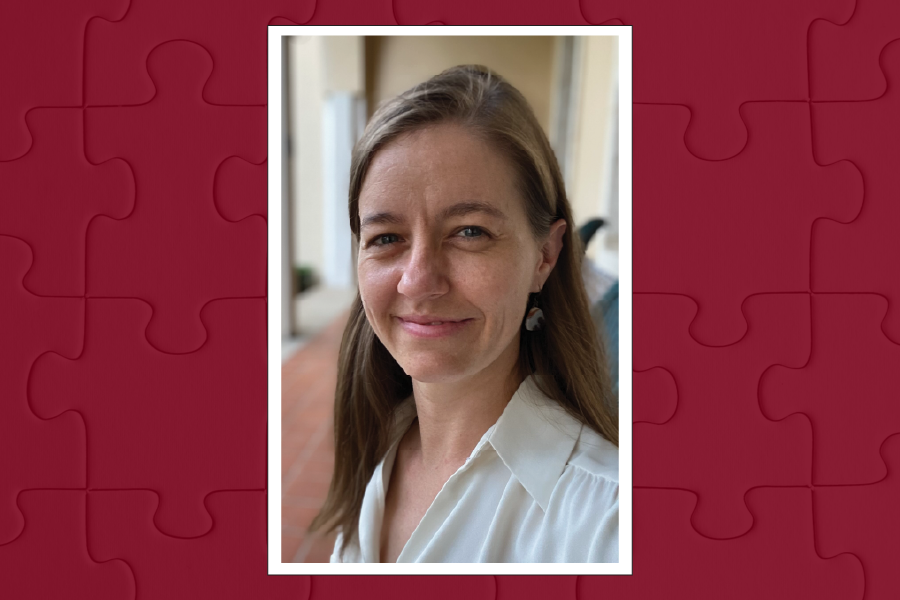MOT Grad Uses Skills To Solve People Puzzles as Much as Technical Puzzles

Kendra Strode studied physics because she liked learning about the building blocks of the universe. Much to her surprise, her physics knowledge inspired her future career from an unlikely place: a technical support help desk.
Strode found physicists use a method of problem-solving that requires breaking a problem apart, understanding constraints that affect the outcome and explaining the “why” of interactions that might be taken for granted.
As it turns out, Strode said her serendipitous student tech support job “requires a similar sort of deconstruction of problems to get to the “why” ‒ both of the technical problem and any challenges the person experiencing the problem may be facing.”
Strode said she discovered she liked solving “the people puzzles as much as the technical puzzles.”
"Over time, I realized I loved helping my peers figure out how to provide technical support and drawing out a team member's strengths that were overshadowed by a mismatched focus on tasks they weren't supported in,” Strode said. “These ‘people puzzles’ were as critical to providing good support as fixing an individual device.”
With a love of learning, teaching and technology, Strode wanted to pursue IT leadership in higher education. That’s when she came across the Management of Technology (MOT) master’s program at the Technological Leadership Institute.
“I knew I wanted a rich and meaningful educational experience versus a quick online program to ‘get the paper’ so I started looking for small, cohort-based, in-person programs,” Strode said. “MOT was the perfect fit, allowing me to expand my professional horizons, develop strategic business skills, dive deep into the implications of rapidly-changing technology, all while centering the human experience and tremendous need for and impact of emotional intelligence.”
Strode is a recipient of the MOT Best Capstone Award for her project developing a knowledge management strategy inspired by the challenge of losing expertise when colleagues leave an IT department. In doing so, she adapted MOT tools for easier use in the higher education industry.
In March 2021, Strode was named the Director of IT Support and Outreach at Rollins College, where she said she often utilizes what she learned at TLI in her role.
“The single greatest impact of MOT was the skills we built for individual, team, and organizational leadership,” Strode said.
“I use the emotional intelligence and interpersonal skills from MOT every day to help keep myself grounded and focused, and to help my team succeed and thrive.”
In the future, Strode says she hopes to continue to help Rollins IT grow into a department known for excellence in both daily operational elements and long-term strategic use of technology.
“In the long term, I hope to contribute to the success of Higher Ed IT across institutions, by helping schools connect with and benefit from the many useful tools and techniques from MOT and beyond,” Strode said.
As for her biggest takeaway of the program, it isn’t a technical skill, but rather an enhanced focus on who she strives to help.
“People are at the heart of everything we do, and investing in supporting and engaging people across all interactions is vital to go from being simply good to truly great,” Strode said. “Even shifting from the golden rule to the platinum rule, treating others as they would like to be treated, can lead to tremendous positive change.”
To learn more about the M.S. in Management of Technology (MOT), sign up to attend an upcoming information session or set up an individual appointment with a member of our admissions team.
Story by Kathryn Richner